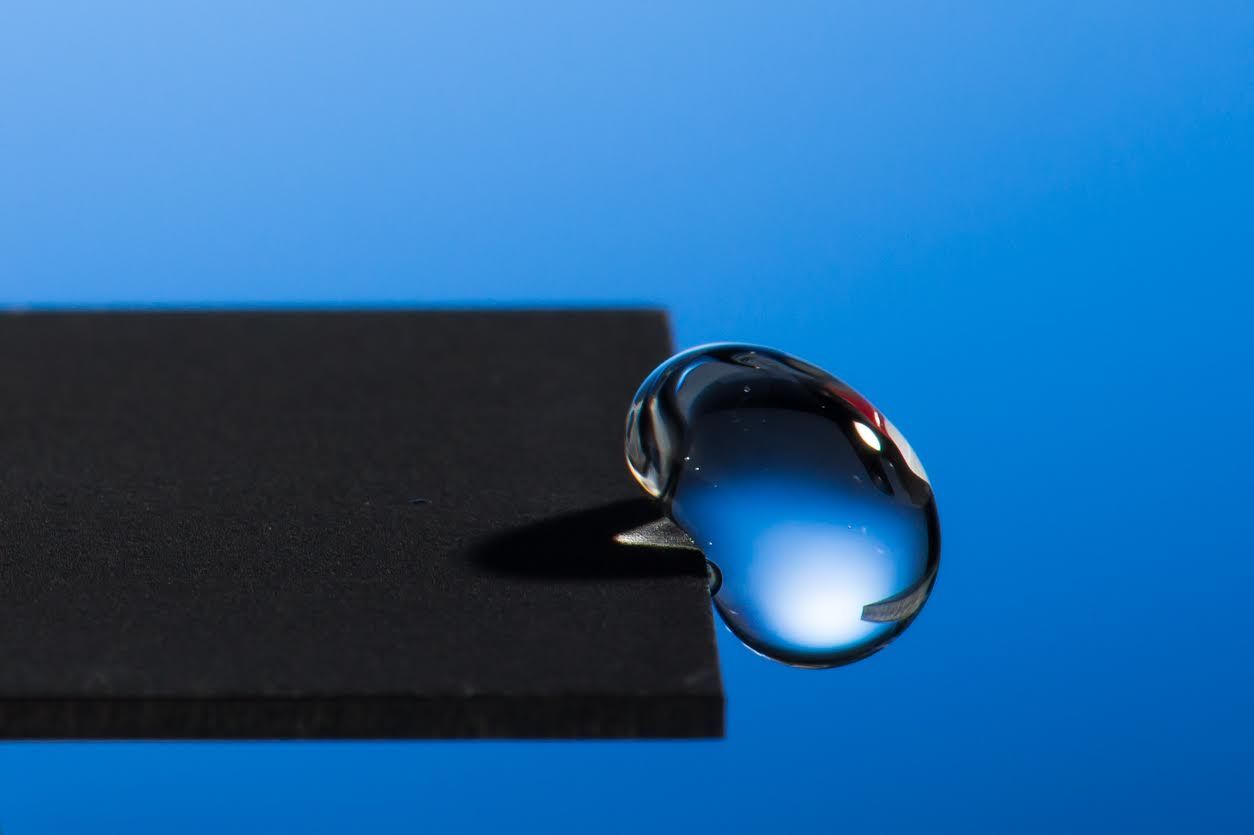
A metal that repels water so effectively that water droplets appear to bounce off it, has been developed by scientists at the University of Rochester. The researchers say that they were inspired by water-repellent lotus leaves, and that they hope the material could be used in a variety of ways - from improving sanitation, to preventing rust.
The discovery was revealed in a paper published on 20th January in the Journal of Applied Physics, and was authored by scientists Chunlei Guo and Anatoliy Vorobyea of the Institute of Optics at University of Rochester.
Guo explained that: "The material is so strongly water-repellent, the water actually gets bounced off. Then it lands on the surface again, gets bounced off again, and then it will just roll off from the surface."
The research into the metal was funded by the Bill & Melinda Gates Foundation and the United States Air Force Office of Scientific Research, and the material was created using a laser-patterning technique called 'femtosecond laser pulses'. This technique creates an etching similar to those of a waxy lotus leaf which means the material itself, rather than just the coating, is water-resistant.
The material is also self-cleaning because as the water quickly rolls off the material's surface, dust and dirt particles are carried away with it.
Guo has pointed out that because water can roll of the "superhydrophobic material" when it is at less than a five degree tilt, it could be a very useful tool to help collect water in developing countries.
"In these regions, collecting rain water is vital and using super-hydrophobic materials could increase the efficiency without the need to use large funnels with high-pitched angles to prevent water from sticking to the surface," Guo said. He added that the material could also be used for making latrines more hygienic in areas where clean water cannot be accessed easily.
Unfortunately, it may be some time before the material is available for commercial sale as currently it takes an hour just to pattern a piece of metal measuring just 2.5cm squared. Guo has said that his next step will be to develop water resistant electronics.
Uncommon Knowledge
Newsweek is committed to challenging conventional wisdom and finding connections in the search for common ground.
Newsweek is committed to challenging conventional wisdom and finding connections in the search for common ground.
About the writer
To read how Newsweek uses AI as a newsroom tool, Click here.








